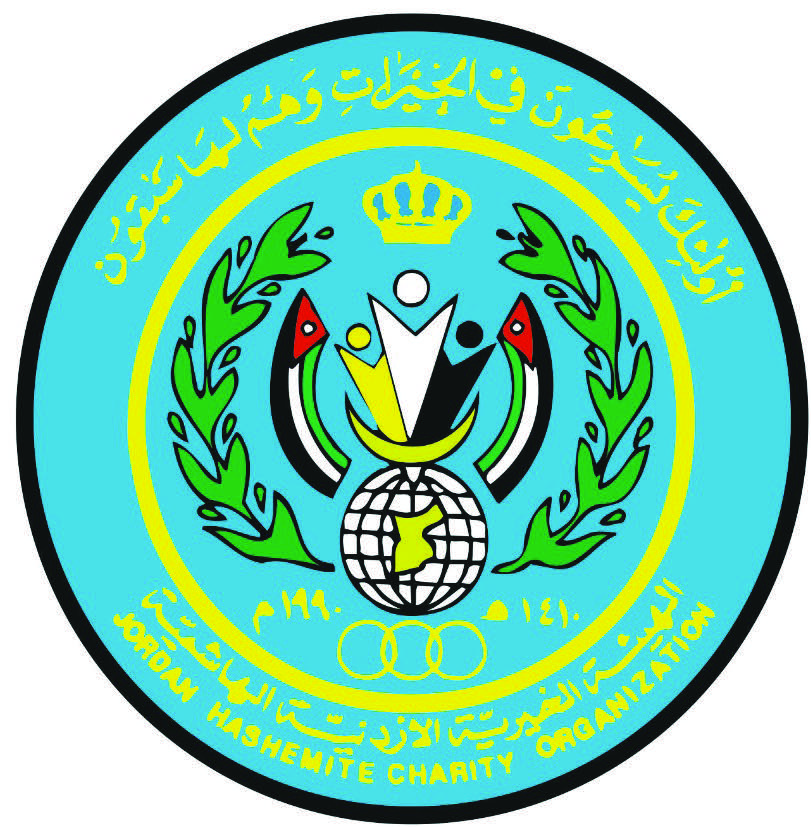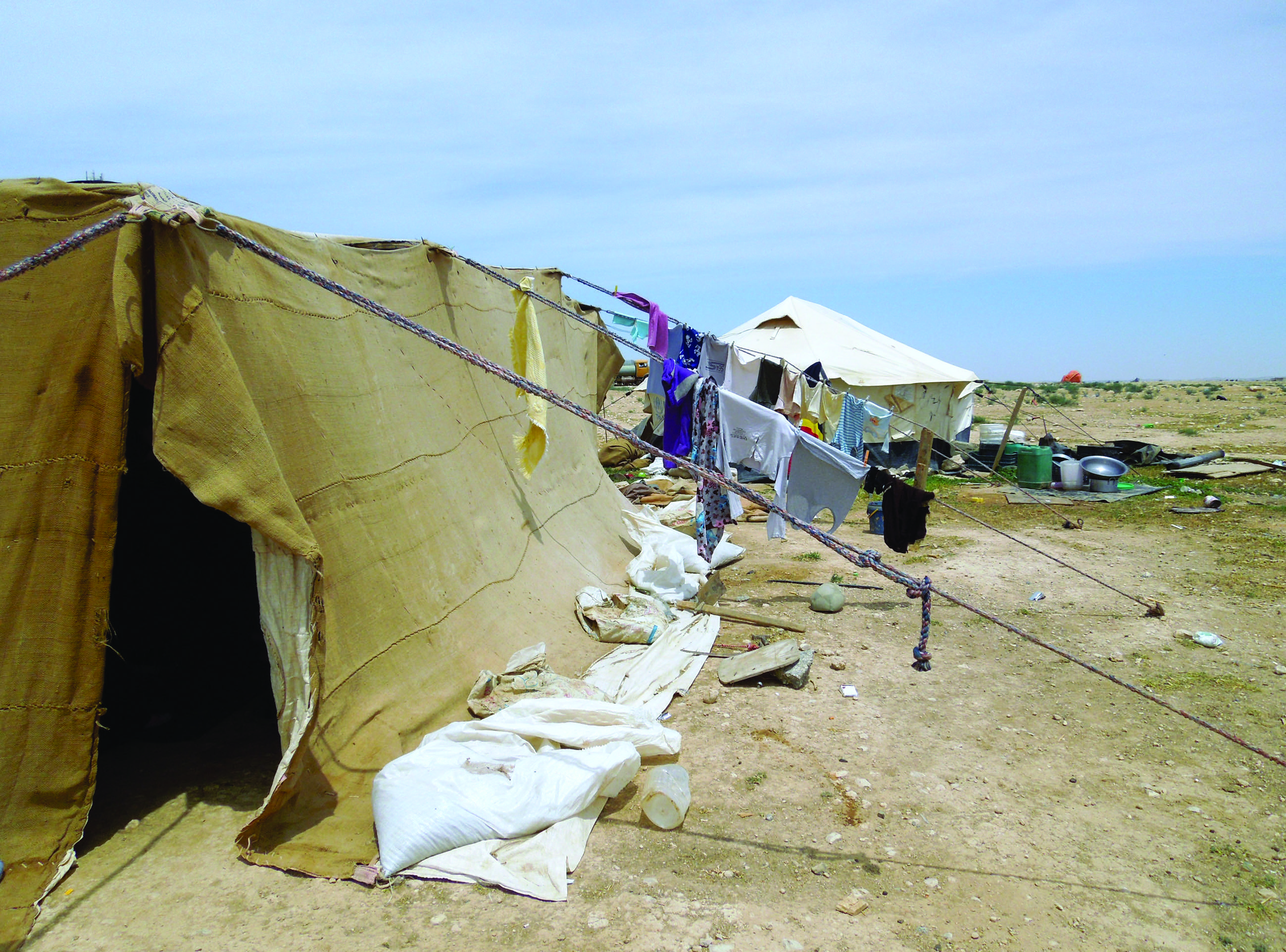Jordan Hashemite Charity Organisation
| Name: |
Jordan Hashemite Charity |
Year founded: | 1990 |
| Address: |
Sa'eed Bino St, Khalda, |
President: |
Ayman Reyadd |
| Phone: |
+ 962 6 5523190 |
No. of staff (Jordan): |
70 |
| Email: | jhco@orange.jo |
No of staff worldwide: |
0 |
| Website: |
 Interview by Marie McGrath, Field Exchange Editor
Interview by Marie McGrath, Field Exchange Editor
During the ENN’s visit to Jordan in March 2014, we had the opportunity to meet with Marwan I. Al-Hennawy, Head of the Division of Coordination, Communication and programmes at Jordan Hashemite Charity Organisation (JHCO), and gain an insight into this national agency that has been at the forefront of humanitarian assistance in Jordan.
When was JHCO founded and how did it come about?
JHCO was founded in 1990. It is a not-for-profit, non-political organisation. It grew out of an initiative by the Government of Jordan and Prince Al Hasan, Crown Prince at that time, to help the Sudanese people during the dry season. When the Iraqi crisis unfolded, the initiative was formulated into JHCO, and became a non-governmental organisation (NGO) registered with the Ministry of Social Affairs. JHCO went on to work as an international NGO, reaching more than 36 countries. JHCO is the biggest ‘on the ground’ national agency in Jordan, delegated by the Jordanian government as the operational partner for countries wishing to present aid to Jordan or other affected countries. There are about 70 staff, all based in Jordan.
.jpeg?w=225) What was JHCO’s role in the early Syria response in Jordan?
What was JHCO’s role in the early Syria response in Jordan?
At the beginning of the Syria crisis response, the government appointed JHCO as the coordinating partner for assistance to Syrian refugees. Many INGOs and United Nations (UN) agencies therefore work with JHCO.
JHCO put in great effort in the early days of the Syria crisis response. “We were almost alone with UNHCR at the very beginning, before Za’atari camp was established. The influx happened so quickly, no one could image the large number of arrivals we would see per day”. In February 2012, around 50,000 Syrian refugees crossed the border placing a huge burden on the government. UNHCR and JHCO successfully united efforts to establish a decent life in the camp. JHCO was involved in setting up tents, the registration system and a welcome meal. Many organisations coordinated with JHCO for delivery of aid. Later, JHCO coordinated, with the help of donations, to replace more than 5,000 tents with prefabricated units to help refugees cope with the approaching winter.
What are your current areas of operation?
More than three-quarters of Syrian refugees live outside a camp setting. JHCO now focuses on those living outside the camp, given their high proportion and also because the government has appointed a Syrian Refugees Affairs Department, headed by the Public Security Directorate, whose focus is to assist camp refugees.
Could you describe the close working relationship you have with the Jordanian government?
Any NGO in Jordan (whether local or international) must apply to the Ministry of Planning and International Cooperation for approval of any proposed programme of work. Where appropriate, the Ministry will request that the agency coordinate with JHCO on programming. JHCO’s operational focus is on in-kind donations and cash assistance. If the proposed work involves another operational sector, then other ministries are involved. For example, if it involves education services, the agency must coordinate with the Ministry of Education. If it involves health, then the Ministry of Health must be consulted.
If an NGO gets the approval of the Ministry of Planning and International Cooperation, then “we work together as a team”. One of JHCO’s strengths is logistics and distribution capacity throughout Jordan. JHCO has central warehouses in every governorate. If NGOs need to store items until a distribution plan is drawn up, these facilities can be used. JHCO provides help with food and winterisation projects, such as clothes and cash assistance, as well as helping with identification of and access to beneficiaries. JHCO has a database of Syrian refugees in Jordan. The organisation jointly plans with agencies who should be targeted across all governorates and effects distribution through JHCO staff, volunteers and community based organisations (CBOs).
 Which agencies have you worked with?
Which agencies have you worked with?
JHCO partners include but are not exclusive to the Lutheran World Federation (LWF), Danish Refugee Council (DRC), International Orthodox Christian Charities (IOCC), World Vision and Islamic Relief. JHCO co-chairs the food sector with WFP and enjoys good relations with UNHCR, regularly attending meetings of the food sector, cash sector and non-food items (NFI) sector.
What other areas of humanitarian assistance are you involved with?
A large component of JHCO’s humanitarian assistance is distribution of in-kind donations. Many NGOs operating outside Jordan do not have a national branch. Also, there are often individual efforts to collect materials for refugees in emergencies; JHCO facilitates the collection and distribution of these donations. For example, in February 2014, JHCO received an IFAD1 donation (Rome) and were asked to distribute on their behalf. The distribution plan was sent by JHCO for approval to IFAD, followed in due course by evidence of the distribution. The donations JHCO receive depend on the season, e.g. in winter, blankets, carpets, clothes and food are common. In summer, food and cash is more typical. Donated food usually takes account of cultural preferences and typically includes rice, sugar, canned foods, tea, tahini, beans, pasta and oil.
JHCO are also involved in supporting cash programming, implemented in an agreement with a local bank. Cash payments are made on a monthly basis using an ATM card. JHCO help to finalise the beneficiaries list and to contact the beneficiaries. Islamic Relief and DRC are two of the agencies JHCO collaborate with on cash assistance.
Do you provide assistance outside Jordan?
JHCO has been involved in many international responses, such as the Iraqi crisis, Gaza crisis in 2008 and 2010, and now the Syrian crisis. JHCO do not have an operational presence outside Jordan but typically provide in-kind donations that are distributed by contacts in the affected country. “We never reject any kind of request for assistance”. Requests may come through JHCO’s website or through diplomatic channels. For example, the government of affected countries may contact the Jordanian government via their embassy with a request for assistance. The government of Jordan then contacts JHCO. The Jordanian people are generous and respond to international disasters with monetary or in-kind donations to JHCO. Sometimes JHCO contact local NGOs in Jordan and organise a campaign for urgent assistance for a particular crisis; they usually “come running to help”. For international assistance, the government of Jordan may provide transport, e.g. a plane, to deliver the donated supplies.
How are you funded?
JHCO funding mostly comes from the private sector, e.g. private banks, individual business owners, universities and individuals - especially those working in the private sector who may donate any annual benefit/bonus to JHCO.
Do you have any final words on the Syrian crisis from your perspective?
The Syrian crisis is a huge refugee crisis. Unlike many other large scale disasters in the world, e.g. Haiti 2010 or floods in Pakistan, it is not short lived but looks like it will continue. Syrian refugees continue to cross the border into Jordan. Humanitarian assistance is a permanent fixture for the foreseeable future, as politically there is no cause for optimism regarding a solution in the near future.
1 International Fund for Agricultural Development

